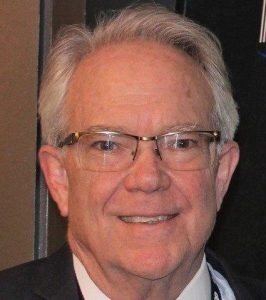Ken Pfeil, who became chief data officer (CDO) for the Commonwealth of Virginia in April, says that the most difficult aspect of his new job with the state is also proving to be the most surprising.
“I mean in that how fractured things generally are,” Pfeil explained. “From an agency perspective, from a locality perspective, and from the whole IT landscape perspective, folks have been used to doing things a certain way for many, many years,” he said at the GCN SLG Tech Summit event on Nov. 3.
“In the past they focused on that one business outcome because it’s local to what they’re used to,” Pfeil said. “And from the surprising aspect, just getting everyone on the same page, starting to realize what some of the common goals are, that’s very surprising that folks generally don’t have that bigger picture in mind.”
Pfeil talked about his first half-year impressions on the job with Alisha Powell Gillis, Senior Editor for Route Fifty, at the Nov. 3 event that covered the increasingly fundamental role of technology in state and local government operations, how governments are reaching out to advanced technologies to serve citizens better, and how Federal funding streams fits into that picture.
The discussion with Pfeil explored the investments state and local governments are making in technology, and examined how new tech services roles like that of the state CDO are changing government service. The Virginia CDO talked about data center views, and his private sector experience that he is bringing to the job.
From Private to Public
Pfeil is a security and finance industry veteran, formerly serving as VP and managing director of Data Protection and Governance at OneMain Financial. Prior to OneMain, he served as chief security officer for TechDemocracy LLC, MFS Investments. Before that, he was CISO for Pioneer Global Asset Management including all operating subsidiaries in 26 countries.
He also spent three decades in strategic, technical, and executive roles at companies including Microsoft, Dell, Capital IQ, Miradiant Global Network, Avaya, and Merrill Lynch. “I’ve also been a contributing expert for Information Security, CIO and CSO Magazines, and am a Distinguished Fellow of the Ponemon Institute,” he added.
In his new job, Pfeil said he is thinking “more along the lines of trying to take out that fractured part of things, and look at things from an individual business perspective.”
In the private sector, Pfeil worked with some fairly large companies with many different business units. Each of those business units had their own individual outcomes that they had to achieve in order to ensure success for that part of the business and on behalf of the overall company strategy.
Major Goals
“I’m trying to approach Virginia in a similar fashion in that executive branch agencies, for example, are business units of the Commonwealth … they all need particular help,” he said. “Specific agencies are just like business units, but we’re trying to lay that foundation and that framework, so that a lot of their individual outcomes can be applied across the state.”
If one agency is working towards one key objective on behalf of the Commonwealth, there are going to be many agencies involved that could contribute but they may not necessarily know what role they can play in achieving the overall objectives. “So we’ve got to be very good communicators. We facilitate conversations. But we’ve also got to help elevate their programs to the point where it’s easier for them to do that,” the CDO said.
“From the broadest perspective, the Commonwealth hopes to bring more efficiency to state government, not only from the financial perspective but from the constituent experience perspective,” he said.
“We are hoping to find outcomes that enhance and enrich the lives of Virginians. Let’s say they need access to certain services – they’re not looking all over the place. Those services should be available to them, and in a proactive manner. I mean, that’s the end goal statement, the whole goal,” Pfeil said.
“We are building a predictive analytics platform. It’s based on Vertica technology which is in use by most of the Fortune 50 out there,” he explained. That will allow the Commonwealth to draw very significant conclusions from a wide amount of data.
“Some of the things that we’re working to accomplish, we’re looking to analytics for our cybersecurity policy,” he said. “For example, based on real-time threat intelligence that we’re getting, and based on other aspects of information security, we’d like to be able to focus on issues that everyone has,” he said, while admitting, “Cybersecurity is an awfully hot market to hire for.”
